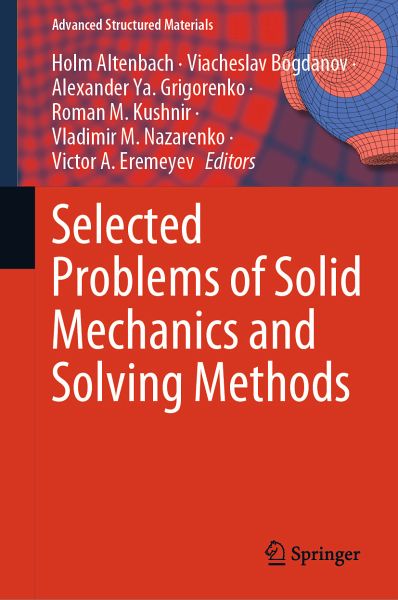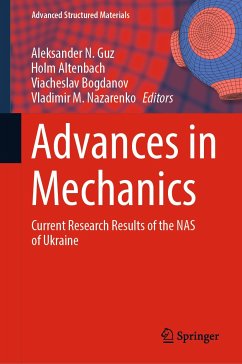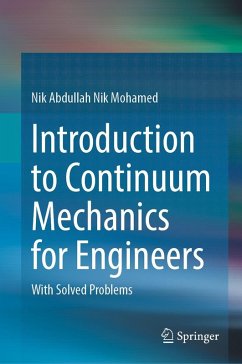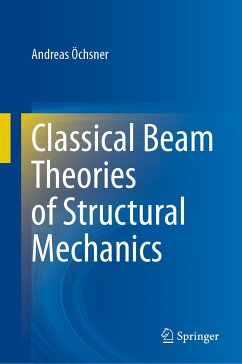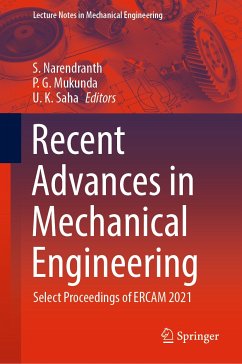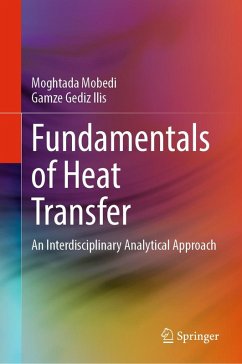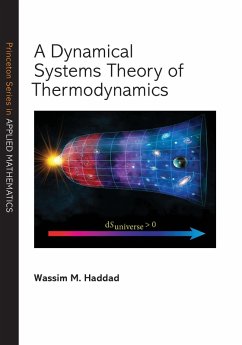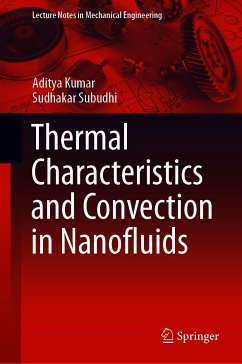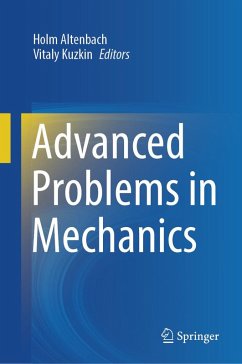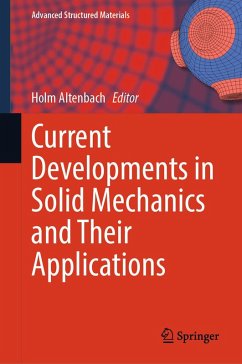Prof. Dr.-Ing.habil. Dr.h.c.mult. Holm Altenbach is a member of the International Association of Applied Mathematics and Mechanics and the International Research Center on Mathematics and Mechanics of Complex Systems (M&MoCS), Italy. He has held positions at the Otto-von-Guericke-Universität, Magdeburg, and Martin Luther-Universität Halle-Wittenberg, both in Germany. Holm Altenbach received his doctorate in 1983 with a thesis on elastic shells with inhomogeneous properties in the thickness direction on the basis of a Timoshenko theory, and in 1987 he habilitated as a doctor of technical sciences with a thesis on viscoelastic shells. He is currently Full Professor of Engineering Mechanics (retired) at the Otto-von-Guericke-Universität Magdeburg, Faculty of Mechanical Engineering, Institute of Mechanics (since 2022). His areas of scientific interest include ¿ General theory of elasticand inelastic plates and shells ¿ Creep and damage mechanics ¿ Strength theories and nano- and micromechanics. Holm Altenbach is Author/Co-author/Editor of 80 books, 580 scientific papers (310 of which were peer-reviewed), and 550 scientific lectures. He was Managing Editor (2004 to 2014) and has been Editor-in-Chief (since 2006) of the Journal of Applied Mathematics and Mechanics (ZAMM). He was awarded by Dr.h.c. from the NTU "Kharkiv Polytechnic" (Ukraine), the University of Constanta (Romania) and the Vekua Institute (Georgia). He is a foreign member of the Russian and Ukrainian Academies of Sciences. Professor Viacheslav L. Bogdanov was born on November 25, 1965, in Kyiv Region of Ukraine and graduated from the Faculty of Mechanics and Mathematics of Kyiv State University in1989. He is working at the S. P. Timoshenko Institute of Mechanics of the National Academy of Sciences of Ukraine (NASU) since 1989, receiving an appointment as Principal Researcher (2009). He is serving as Vice-President of the NASU and Head of Section of Physical, Technical and Mathematical Sciences of the NASU (from 2020 until present). He received the Candidate of Sciences degree (Ph.D.) (1992) and the Doctor of Sciences degree (2009) in Physics & Mathematics. He is Academician of the NASU (since 2015). His principal scientific results have been obtained in the mechanics of deformable solids: fracture mechanics, the three-dimensional theory of stability of deformable bodies, and mechanics of composite materials. He developed a combined approach to investigating non-classical problems of fracture mechanics (problems of fracture of pre-stressed bodies with cracks and fracture of solids under compressive loading along parallel cracks). He is Author or Co-author of 18 monographs, textbooks, reference publications, and more than 150 scientific papers. Prof. Dr. Alexander Ya. Grigorenko was born in Kyiv on June 17, 1955. He was graduated from the cybernetics department at the Kyiv State University in 1977 with a Diploma in Applied Mathematics, has worked at the Institute of Mechanics since 1981, and has headed the department of numerical methods since 2005. He defended Ph.D. thesis in 1980 and (Dr. Sci. thesis Phys.-Math.) and in 1993 and was awarded the title of Professor in 2001. His main achievements are in the field of solid mechanics: wave and vibration processes in elastic and electroelastic bodies, numerical analysis of stationary deformation of anisotropic inhomogeneous shells and elastic bodies, and dentistry biomechanics. Professor Roman M. Kushnir is Chief of Department of Thermomechanics and Director of the Pidstryhach Institute for Applied Problems of Mechanics and Mathematics of Ukrainian National Academyof Sciences, L'viv, Ukraine. He was graduated from Technical University "L'vivska politekhnika" in 1976 and obtained the Ph.D. (Physics & Mathematics, Mechanics of Solids) from Institute for Applied Problems of Mechanics and Mathematics of Ukrainian Academy of Sciences in 1981, L'viv, Ukraine. In 2000, he got the D.Sc. degree (Physics & Mathematics, Mechanics of Solids) from the Pidstryhach Institute for Applied Problems of Mechanics and Mathematics of Ukrainian National Academy of Sciences. He supervised seven Ph.D. theses and three D.Sc. theses and acted as Author/Co-author of 4 books and 300 journal and conference papers. His research interests are determination and investigation of stressed-strained state and limit equilibrium of piecewise-homogeneous bodies with thermal and residual strains and structural imperfections (inclusions and cracks) using the distribution technique, formulation of direct and inverse mechanics problems, and development of methods for their solving, in particular, for the thermosensitive bodies and the composite shells. Prof. Volodymyr M. Nazarenko was born on 19.03.1956 in Oryol (Russia). He graduated from Kyiv University in 1978 and works at the Institute of Mechanics of NAS of Ukraine. Since 2012, he serves as Head of the Department. His scientific work is in the field of mechanics of deformable solids, mechanics of fracture of materials, and related areas: non-classical problems of fracture of materials in compression along cracks and under the action of initial stresses along cracks and problems of loss of stability of deformable bodies. Prof. Dr. Victor A. Eremeyev is presently Professor at Calgliari University. He has over 25 years of scientific work experience, starting his career as Assistant Professor and Associate Professor, becoming Professor of Divisions of Computer Science, Elasticity and Mathematical Modeling of Department of Mechanics & Mathematics of Rostov State University/South Federal University. Later he served as Head of the laboratory of smart materials in Southern Scientific Center of Russian Academy of Science, Researcher at Martin Luther University Halle-Wittenberg and Otto-von-Guericke-University Magdeburg, Germany, and Professor at Rzeszów University of Technology, Rzeszów, and Gdansk University of Technology, Gdansk, Poland. He is Technical Authority in Applied Mathematics and Mechanics of Solids. His experience includes Education, Teaching, and Programming.
